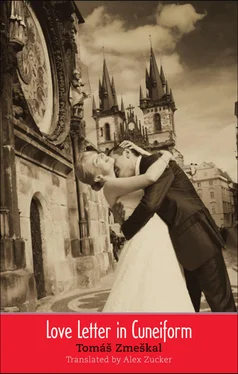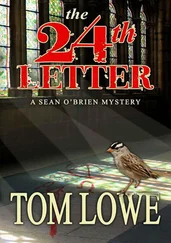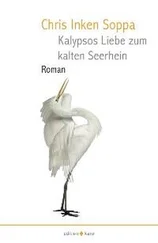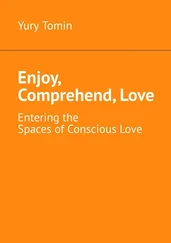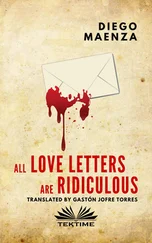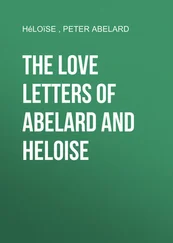“Maybe you should go show it to Aunt Květa?” Jiří said.
“You know, Jiří,” Alice said, “things weren’t exactly ideal between my mom and dad, and with her in the hospital … I’m not so sure it would be good to ask her about it right now. She’s got enough to deal with as is. Though it’s true I had the feeling they’d been getting closer again.”
Jiří studied Alice a moment, then said, “What does that mean, getting closer?”
“Closer, you know, like loving each other. But whatever, I’ll bring it to my mom tomorrow.”
The next day at the hospital, she showed her mother what Jiří and Aunt Anna had discovered, and asked what she thought of it. “Your dad — well, your dad was born the same day they announced they had deciphered the Hittite language. And when we were young we used to go on dates to lectures by Professor Hrozný, the man who cracked the code,” Květa said. That was as far as she wanted to go. The only one who seemed haunted by the two sheets of images was Jiří. One day, when Alice came home, he said: “I’ve got it, Alice, I’ve got it. I figured it out and tomorrow we’re going to have it deciphered, or translated, rather.” Alice already knew what he was talking about. “You know what, Jiří? I’ve got a lot on my plate right now. Why don’t you go by yourself?”
And so, resigned yet filled with a sense of adventure that can be experienced only in Eastern Europe, the next day Jiří knocked on a door with a plaque that read: Dr. Jakub Hájek, Office Hours Tuesday and Thursday 15.00–17.00 . Beneath it, added in hand, was: Office hours are not intended for tutoring before exams . A few students paced back and forth in front of the door, waiting their turn. Jiří’s turn came at four thirty. He knocked on the door. “Come in,” he heard, and entered. A thin man stood on the other side of the desk, his face covered with a full graying beard. “Hello,” said Jiří.
“Hello,” said Professor Hájek. He studied his guest a moment. “What can I do for you?”
Jiří introduced himself and said: “I have a favor to ask, Professor. I have a text that I need translated.”
“Where are you from? How come I’ve never seen you before?”
“I already have my degree, though it’s in economic history, which is nowhere near as interesting a field as yours,” Jiří said. “The reason I’m here is, we found this thing at home and we don’t know what it says, and I believe it was written by one of my relatives who recently passed away, to his wife, who’s now in the hospital. Although … maybe the whole thing is nonsense, but would you mind taking a look?”
“Did this relative of yours study in our department?” Professor Hájek asked.
“I don’t think so,” Jiří said. “I mean, definitely not. He was a civil engineer. It’s just I was told that they met here — that is, he and his wife — at Professor Hrozný’s lectures, but I’m not exactly sure.”
“But that must have been …”
“My aunt is a little over seventy,” Jiří said.
“All right then, let’s have a look.”
Jiří pulled the plastic folder from his briefcase containing the papers and handed it across the desk. Professor Hájek studied the papers a while and Jiří had the impression he was actually reading. After about ten minutes, the professor removed his glasses, opened a drawer, took out a tissue, and wiped his glasses a few times, looking embarrassed.
“Eh-hehm,” he said, clearing his throat. “It is in fact a letter, and if I may say so, of a personal,” he cleared his throat again, “a very personal nature. I would go so far as to call it a love letter, so to speak … though of course, that’s not for me to say.” After another pause he said: “Do you have a pen and paper?”
“Of course,” Jiří said, taking out a ballpoint and a scrap of paper.
“That won’t be enough. Here, sit down,” said the professor, pointing to an empty desk. Jiří sat down and the professor placed several sheets of blank lined paper in front of him. “I’ll dictate,” he said. He paused, then added, “You know, there are a few mistakes. In particular, repeated errors in the perfective and the active and passive voice. On the other hand, in a very inspiring way he has created several neologisms for which Hittite has no words, and there is also some interesting vocabulary of non-Hittite origin. I suggest that I quietly correct the errors and translate the other words into Czech as the author most likely intended. Do you agree?”
“Please,” said Jiří. “Ready when you are.”
Professor Hájek began to read, slowly and distinctly:
Dear Květa ,
with great delay I have realized that I still love you. That is why I must tell you: I still love you! My shyness and lack of common sense, together with the pain inflicted on me by the news of your long-ago relationship with Hynek, have resulted in this constant searing pain becoming entangled with a feeling of humiliation. As a result I have tried to deny and erase my love for you. Yet I have found that I am not capable of it. In fact I must admit that I have never been capable of it, though I consciously attempted with all my might to do so many times. At first when I left you I tried to forget you, and I hated you several times a day. Yet my hatred was knottily intertwined with my enduring love for you. Every day for many years I tried to forget you. But then I would see you somewhere and once again I would bitterly realize that my hatred for you was gone and I had to try slowly to rebuild it. They were bitter moments, full of despair and the unrealized dream of forever erasing you from my life. So it went, day after day. But then, just when I thought I had succeeded and that, at least in my mind, you had ceased to exist, I would once again be reminded of you by Alice. As she matured, her voice became increasingly similar to yours. One day, years ago, when my hearing was still good, I asked her to go find out how much it would cost to buy a new vise in Prague that I needed for my workshop in Lhotka. A few days later she called and when I picked up the receiver I heard you. She didn’t say, “Hi, Dad,” the way she usually did, but just spit out a confused list of prices for different items, and instead of her again I heard you. I hung up with my heart pounding so hard that I didn’t think I would survive the day. My dream of banishing you from my head and my heart for the rest of my life had run aground. No matter how I tried, I found that all my intentions fell to pieces like the Tower of Babylon. The well-hewn granite blocks of my pain were not capable of holding together that terrible edifice. It took a long time for me to discover that the reason for my failure was not lack of hatred, but the excess of love I never stopped feeling for you. I am sure all these things will seem self-evident to you, Květa. But I was truly unaware of them. I never much concerned myself with my feelings or yours. Both of us have had to pay for this unfortunate negligence. I can only say that I apologize to you and that I regret it. I am an old fool who in his understanding of your feelings and his own does not reach even to the constellation of freckles covering your right ankle. But I must admit that when I realized my memories of you caused love rather than hate, I felt like an inventor or an explorer who had discovered new lands. Really! I’m not exaggerating! Forgive me and my foolish metaphors, but I think I felt the way my childhood hero James Watt must have felt when his improved steam engine began to work at full capacity. I don’t know how to explain it any less foolishly. For that matter I’m not a poet and I am well aware that my attempt at an apology and an explanation of my love only goes to show that my foolishness and folly have grown in direct proportion to my increasing years. My love still exists. It exists to this day, and to this day it grows stronger. Once upon a time I was sheepish and bewitched! As bound to happen to anyone gazing into your eyes .
Читать дальше
